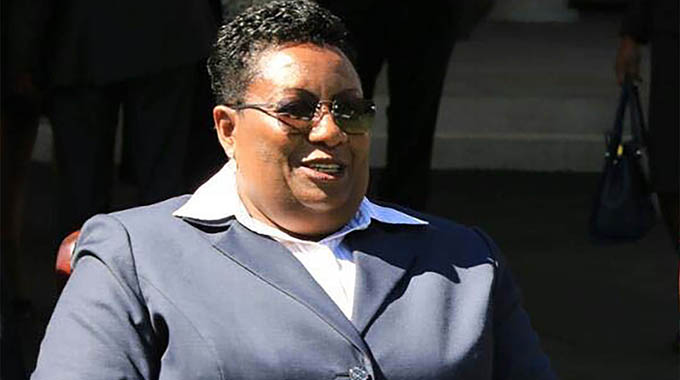
More than US$5 million worth of corruptly-acquired property, including 501 vehicles, have been seized by the Zimbabwe Anti-Corruption Commission in the past 18 months as Zimbabwean authorities intensify efforts to hunt down the proceeds of corruption for eventual seizure as well as prosecute the corrupt.
Authorities are hunting down foreign assets suspected to have been corruptly acquired by Zimbabweans in South Africa, Britain, the United Arab Emirates, Malaysia, Mauritius and Kenya and have already submitted to the Hight Court eight applications for unexplained wealth orders as efforts intensify to eventually seize all proceeds of corruption.
So far this year the Zimbabwe Anti-Corruption Commission has submitted 87 dockets to the National Prosecuting Authority for criminal trials and secured 10 criminal convictions countrywide in the last 18 months.
In the twin-pronged attack to try the corrupt and ensure they cannot benefit financially from corruption, eight more vehicles worth US$160 000 were also confiscated and forfeited to the State while a total of US$330 000 and $8 million in local currency was also recovered in unpaid customs and excise duties after a joint operation with the Zimra.
Zacc chair Justice Loice Matanda-Moyo told the International Anti-Corruption Day commemoration in Harare yesterday that: “Among its high profile matters, the commission arrested two sitting Government ministers on allegations of corruption and money-laundering involving US$95 million.
“These arrests followed information received from the Auditor General and from the compliance department of Zacc on the abuse of Covid-19 funds. The commission has also seized 27 vehicles and three properties from suspects under investigation.
“We understand that the NPA has been on a recruitment drive and we look forward to corruption cases being given top priority next year,” she said.
The Judicial Service Commission (JSC) had also established specialised courts for handling cases of corruption and economic crimes.
Justice Matanda-Moyo said the commission conducted compliance checks in the procurement processes for the purchase of Covid-19 drugs and equipment and the exercise led to the arrest of senior officials in the Ministry of Health and Child Care and at Natpharm.
Zacc was also assessing systems of 92 local authorities to end corruption and fraud, particularly in procurement and that has already led to the arrest of several senior officials in local authorities.
The commission had already started working with local authorities to establish integrity committees and ensure their systems and
procedures were watertight.
Government had also amended legislation to ensure a more comprehensive legal framework for asset recovery, combating money laundering and regularisation of lifestyle audits of public officials whose assets were supposed to be commensurate with their level of income.
“The 2021 National Budget is in full support of the fight against corruption as Government set aside $3,6 billion for operations and capital requirements for all the institutions in the fight against corruption. In its 2021 National Budget, the Government has allocated $317 million to the Zimbabwe Anti-Corruption Commission to amplify the fight against corruption.
“The Government has also committed to funding Zacc’s Electronic Case Management System and purchase an office for Zacc in all provinces in support of the devolution agenda.
“Zimbabwe was however, encouraged to expand the definition of ‘agent’ to include foreign public officials and officials in international organisations such as the United Nations so that they do not hide behind diplomatic immunity whilst committing acts of corruption,” Justice Matanda-Moyo said.
The United Nations estimates that the world loses about US$3,6 trillion annually from corruption of which developing countries lose about US$1,26 trillion.
In an interview on the sidelines of the commemoration, Justice Matanda-Moyo conceded that the commission had been finding it difficult to bring finality to corruption cases but said they were in the process of putting in place adequate measures to ensure suspects were not just arrested as a window dressing measure.
The “catch and release” syndrome, where corruption suspects were arrested only to be released by the courts on bail with trials continually postponed, was being ended.
“If we want to win against corruption, we really have to go all the way so what we are doing right now is that the Judicial Service Commission has actually set up Anti-Corruption Courts throughout the country and we expect the NPA to provide the prosecutors in all those courts.
“However, the biggest risk that we have is corruption itself in fighting corruption. Our institutions are not free from corruption. Be it the Zacc, police, NPA, the judiciary, we are also struggling with corruption and we want to deal with this corruption under those pillars that we have established.”
Corruption cases were by nature, very complex but the commission would continue fighting until the end.
“Corruption matters must be dealt with swiftly. Once there has been an investigation, prosecution must be swift. They must be dealt with within a short period of time because if you give these people time, they will start offering bribes (to investigators and prosecutors) and those cases will die a natural death,” she said.
Justice Matanda-Moyo said Zimbabwe had continuously evaluated progress in fighting corruption since the ratification and adoption of the United Nations Convention against Corruption (UNCAC) by participating in review mechanisms provided by the Convention.
“The review also noted the lack of a whistleblower protection legislative framework. As Zacc, we are pleased to note that the lay Bill is before the Attorney General’s office. We have been assured by the Minister of Justice that the Bill will be prioritised in 2021,” she said.
State institutions combating corruption and crime were now required to publish reports once every quarter giving statistics on the number of arrests, successful prosecutions or convictions and value of money or property recovered.-Herald





